Al Lewis: Get to Know Grandpa from 'The Munsters'
There are certain things we know for certain about actor Al Lewis: he was born (though when is a major bone of contention), he starred in the classic TV series Car 54, Where Are You? and, more notably, The Munsters; he was an ally of radio broadcaster Howard Stern and spent a lot of his time telling the FCC to f-off. And beyond that ... you just can't be sure.
"Al Lewis did not have a problem rewriting his own history to suit the interview he was doing," observes pop culture historian and performer Geoffrey Mark, who got to know the actor later in his life. "But that's part of his story, because he wanted to keep Grandpa alive. He had no trouble being stereotyped and he understood how publicity works, and therefore he felt like he needed to come up with things to keep everything going.
"'Oh, the guy who played Grandpa has a PhD.' Well, no he doesn't," Geoffrey adds with a laugh, "but he said that he did. If you went to the restaurant he owned for a time, he would sit with people and talk to you, but you had to know that he never told the truth. I don't mean in his personal life, I mean in public, for the press, for public consumption. The stories just kept changing and changing and changing some more."
MUST-READ: The 1960s — Your Guide to 60 Classic (and Not So Classic) TV Sitcoms and Where to Stream Them
Al Lewis: His Early Years
The most common birthdate for Abraham Meister (the future Al Lewis) is April 30, 1923 in New York City, though he frequently said he was actually born in 1910. His parents were Jewish immigrants from the Russian Empire.
As Lewis explained to The New Times, "My mother was a worker, worked in the garment trades. My mother was an indomitable spirit. My grandfather had no sons. He had six daughters. They lived in Poland or Russia; every five years it would change. My mother being the oldest daughter, they saved their money and when she was about 16, they sent her to the United States, not knowing a word of English. She went to work in the garment center, worked her back and rear-end off and brought over to the United States her five sisters and two parents. I remember going on picket lines with my mother. My mother wouldn't back down to anyone."
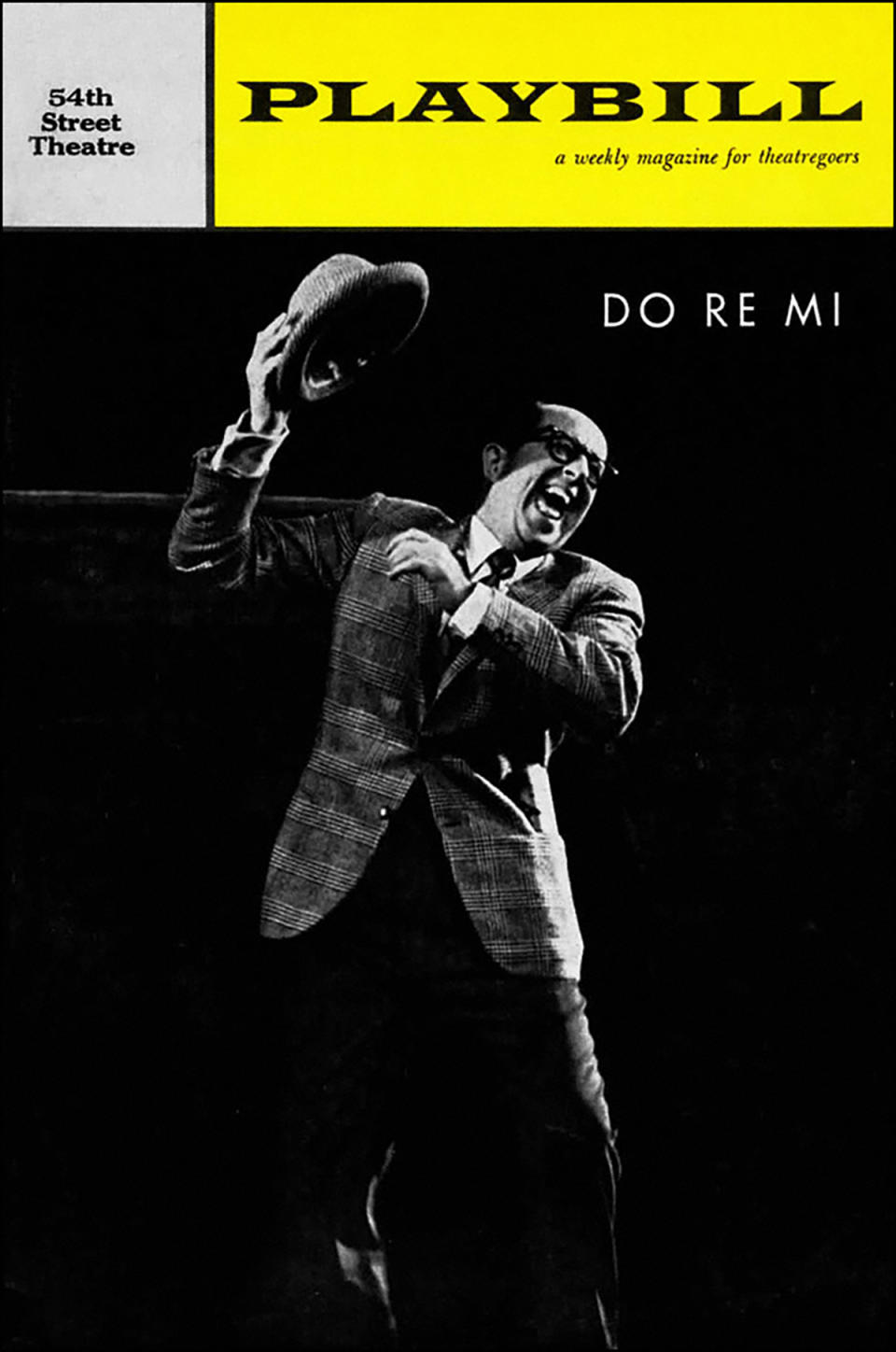
?Playbill
As noted, his education and how far he went with it, is up for debate. What's not is that he got his start working in burlesque and vaudeville theaters before appearing on Broadway in the dramas The Night Circus (1958) and One More River (1960), and then, tapping into his comic sensibilities, the musical comedy Do Re Mi (1962). Going with humor seemed a natural road to pursue.
"How can you not be funny with that face?" Geoffrey Mark rhetorically asks good-naturedly. "Al said straight lines and people laughed. He had a wonderful comic timing and realized that early on. He got involved on Broadway, did a few film things and then he started working in middle age a lot more often on television. He even did dramatic television."
His credits between 1953 and 1963 include The Big Story, Decoy, Brenner, Deadline, The United States Steel Hour and Naked City, with the sole comedic roles being in three episodes of The Phil Silvers Show. Between that and his success in Do Re Mi, he came to the attention of writer/producer Nat Hiken, who was interested in casting him in his new sitcom Car 54, Where Are You?
MUST-READ: Fred Gwynne — 14 Joyful and Tragic Facts About The Munsters Star
Car 54, Where Are You?
Starring Fred Gwynne and Joe E. Ross, and airing between 1961 and 1963, Car 54, Where Are You? puts the two actors center stage as officers Frances Muldoon and Gunther Toody. Mis-matched and always getting into comic mis-adventures, they patrol the fictional 53rd precinct in the Bronx.
As Geoffrey explains it, "Early in the first season, Al Lewis played a car repairman, not the character he's famous for. The cast and company of Car 54 liked him so much, especially Joe E. Ross, because they understood each other. These were not-handsome, Jewish guys who are funny and making a living at it, but a little frustrated in their personal lives. In any case, they end up creating a character for him with the the name Leo Schnauser."
Speaking to the Archive of American Television, Al Lewis detailed exactly why he enjoyed working for Nat Hiken on this series as much as he did:
"He was a comic-writing genius and very prolific. Out of the hundreds of shows I've done that have allegedly been funny, I look at them and usually the producers aren't that great and it's up to you to make it funny. That means you're carrying stones uphill. You didn't have to do that with anything that Nat wrote. Also, Nat was a Hollywood workhorse. I had to be ready to film at 8:00 in the morning, so I'd get there, say about 7:00, go to makeup, put on the police uniform and be ready to go. When I would come into the building, Nat was already there in his office, typing. I'd say, 'Good morning, Nat.' 'Morning, Al.' And when I left to go to the theater for Do Re Mi, there he was and I'd say, 'Goodnight, Nat.' 'Goodnight, Al.' You can't find a writer like that in Hollywood."
The material and the actor meshed perfectly, which is why the decision was made to expand Schnauser's presence even further. "They got Charlotte Rae to play his wife, and her character was out of her mind on that show, living in a fantasy world," says Geoffrey. "And in the second season, he and Charlotte were on a lot. In fact, there were episodes built around them in the second season, which gave him very large national attention, because although the show didn't last long, while it was on it was very popular. Not so much in the ratings as by comedians, comedy writers and dramatic writers, who would point to the show as an incredible satire."
Added Lewis himself on Schnauser's domestic situation, "Both Nat and the sponsor wanted it broadened, so they gave me a wife so that it would take me out of just the precinct. And he gave me a very enormously talented lady, Charlotte Rae, who went on to a great career in Hollywood." Which would include The Facts of Life.
MUST-READ: The Facts of Life Cast Then and Now — Catch Up with the Ladies of Eastland Academy
The Munsters
Given how many fantasy sitcoms existed by 1964 — including My Living Doll, Mister Ed, My Favorite Martian and Bewitched — Universal Pictures wanted to get in on the action. Having produced classic horror movies in the 1930s and 1940s (Boris Karloff's Frankenstein, Bela Lugosi's Dracula, Lon Chaney Jr's The Wolfman, etc.), they put into development a sitcom that would be a hybrid of those films and a series like The Donna Reed Show. The result was The Munsters.
MUST-READ: 12 Spookily Fun Unknown Facts About the Original Bewitched
The focus would be on a typical American (ghoulish) family, with Fred Gwynne as patriarch Herman Munster (who looks like Frankenstein's monster), Yvonne De Carlo as his vampiress wife, Lily; Butch Patrick as their werewolf son, Eddie; first Beverly Owen and then Pat Priest as human-looking niece Marilyn; and Al Lewis as Grandpa, Lily's father who is also alluded to being Count Dracula.
Notes Geoffrey, "It was Fred Gwynne who suggested that Al Lewis test for Grandpa, because they'd worked together on Car 54, he knew their timing worked and that the makeup would look good on him. And the other thing he had going for him is that Al Lewis was a tall man. Fred Gwynne was a very tall man, too, but in those boots he wore as Herman, he was about six-foot-seven-inches. Well, to play scenes with him, they couldn't have someone five-foot-five-inches. Al was over six feet tall, he just looked small next to Fred."
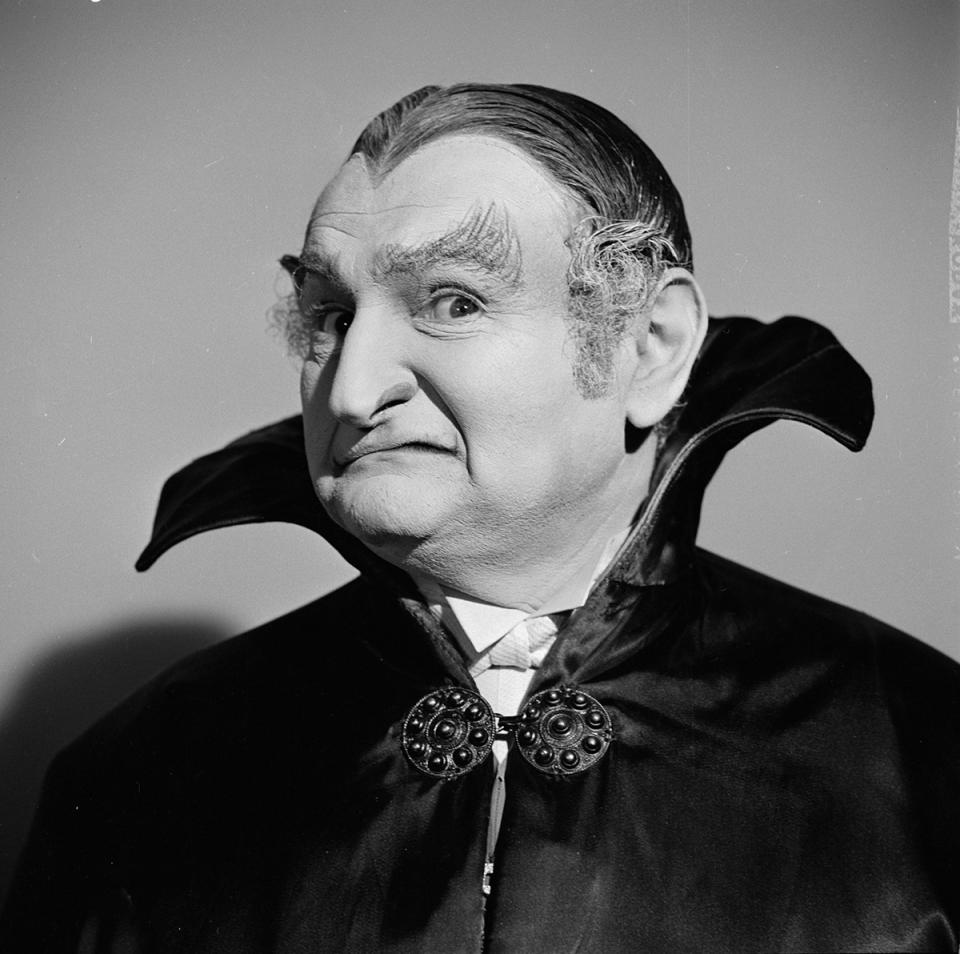
?CBS/courtesy MovieStillsDB.com
The Munsters only ran from 1964 to 1966 (the same as its competition, The Addams Family), but there's no question that it struck a cord with an audience that seemed to love it. In fact, in 1966 the theatrical film Munster Go Home! was released, mostly for the foreign market as a way to pave the way for the arrival of the show; and then there would be the 1981 TV reunion movie, The Munsters' Revenge.
Points out Geoffrey, "The Munsters became a cash cow for Al Lewis. There were the revivals, he did personal appearances in his Grandpa drag and, like he said, it paid the bills, so why not embrace it?"
The Show Ends, but Grandpa Goes On
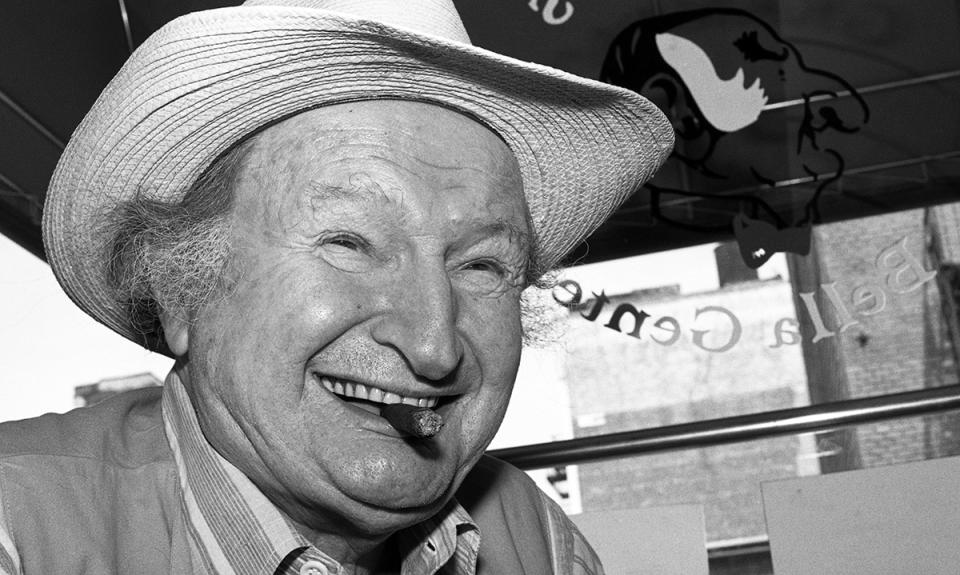
Catherine McCatherine McGann/Getty Images)
One can certainly understand why he did so. The bottom line is that like many actors of that era coming out of popular shows, Al Lewis really found himself typecast and forced to play variations of a theme — whether in an episode of Lost in Space or a TV movie like The Night Strangler — and frequently appear in costume at different events. But the truth is, he never stopped working. In fact, he was a part of 20 big and small screen films between 1969 and 2002, and made about a dozen guest appearances on television through the years.
Helping to keep his "brand" alive was the fact that he made many appearances on The Howard Stern Show, and stirred up some controversy at one of Stern's freedom rallies against the Federal Communications Committee, shouting out the previously-mentioned curse directed at organization.
In 1987, he opened an Italian restaurant called Grampa's Bella Gente in Manhattan, which is where Geoffrey got to know him. "I found him to be a very warm person," he reflects, "but not revealing. He was happy to ask how my career was doing, but other than , 'How's your wife?,' you didn't ask anything., because he wasn't going to go there. He tried to stay in character, because he was at the restaurant a lot and, more likely than not, he'd be there with the makeup and the costume. He wasn't competing with other restaurants for the food, he was competing for the ambiance and his being there."
In 1998, he was convinced to run for governor of New York as a "Green Party" candidate, but didn't win. Then, in 2000, he sought the Green Party nomination for Senate, but came in second.
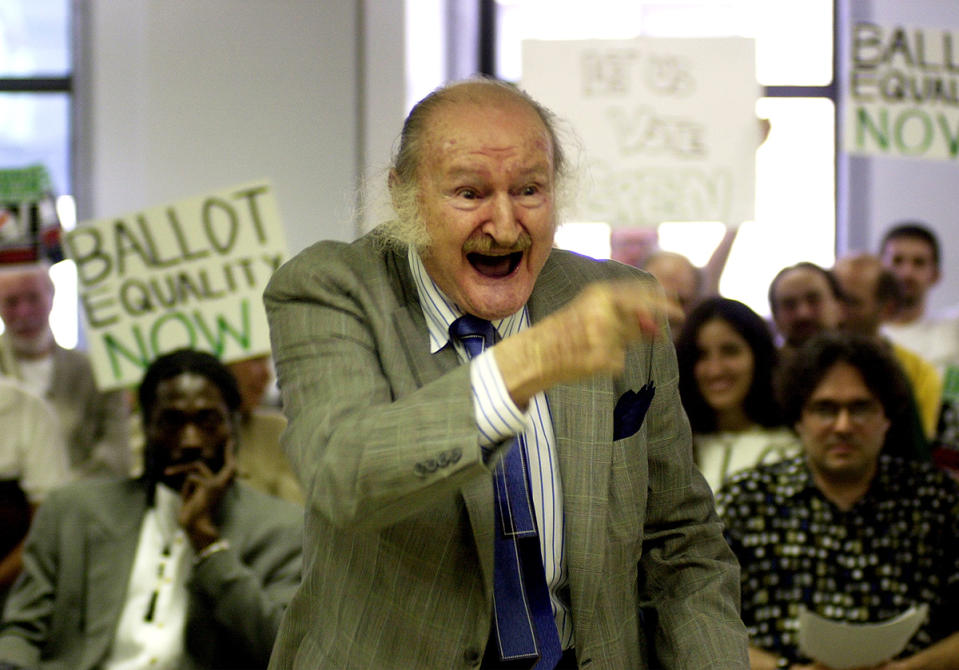
Chris Hondros/Newsmakers
Particularly impressive about Al Lewis is the fact that so many performers spend a lifetime trying to shake off their most popular character, but he chose to embrace it and, in fact, refused to allow the audience to forget he was Grandpa.
"He had been in show business long enough and was savvy enough to know that's where his bread was buttered," says Geoffrey. "And that if he was going to continue to have a career with that face, he would have to do it. He could play little character parts in films and television and maybe pay the rent, or he could push this thing and actually make a nice living. And that's what he chose to do."
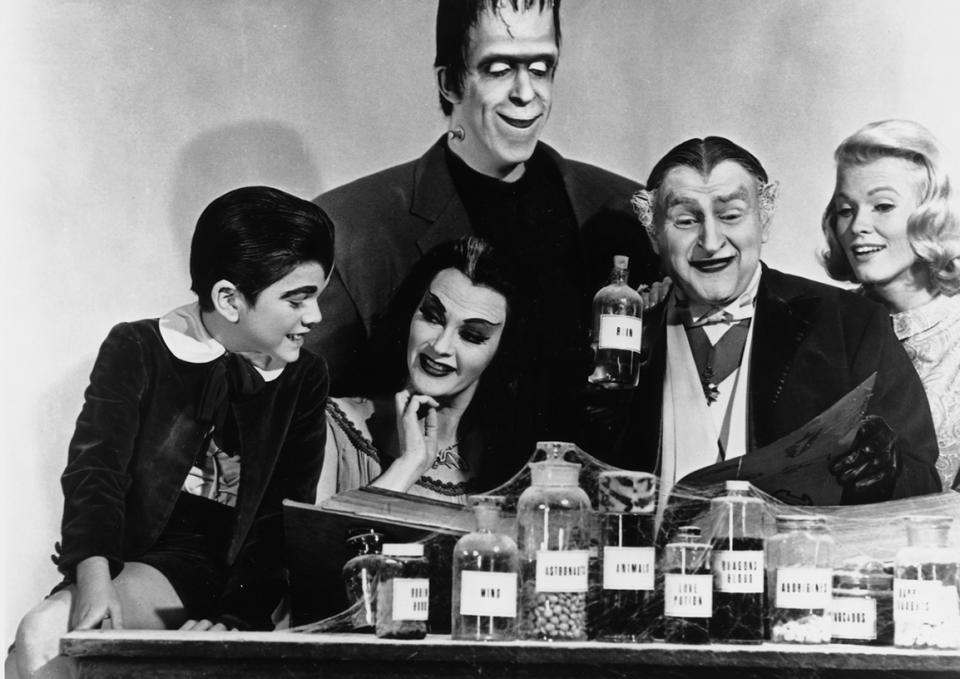
?CBS/courtesy MovieStillsDB.com
He compares it to Lucille Ball once she had the "Lucy character" from the sitcom I Love Lucy. Despite the fact she'd made 70 films before that show, pretty much for the rest of her life she was playing some variation of Lucy Ricardo.
"It resonated," he states. "Carol Burnett on the Carol Burnett Show — she'd had film work and did two Broadway musicals, but what resonated was her as a sketch performer, and she pretty much stuck to that. I don't think Al Lewis made a bad decision doing this."

?CBS/courtesy MovieStillsDB.com
Off camera, Al Lewis was the father of three, and married twice: first to Marge Domowitz, from 1956 to 1977; and then to Karen Ingenthron from 1984 until his death. That death took place on February 3, 2006 at the age of 82. And despite the fact that he's been gone for nearly 20 years, the memory of Al Lewis — and his role of Grandpa — continues to live on.
"I think his legacy," Geoffrey muses, "is that there's room in show business for actors who are not beautiful, but who are talented and funny, to survive and make a nice living. This is a generalization, but all of us in show business to some degree live for our careers. He loved his and he loved the fans and he loved being recognized. So, as far as his career goes and his celebrity goes, I think Al was a very satisfied man. Hie personal life was like everybody else's, with ups and downs and happiness and unhappiness. But I don't think his personal life is his legacy. His legacy is his work and how he affects all of us — and is still affecting new young people who watch his shows. As long as those shows keep finding new places to be shown, Al Lewis and Grandpa will keep alive in the American psyche."
Enjoy much more Classic TV coverage
